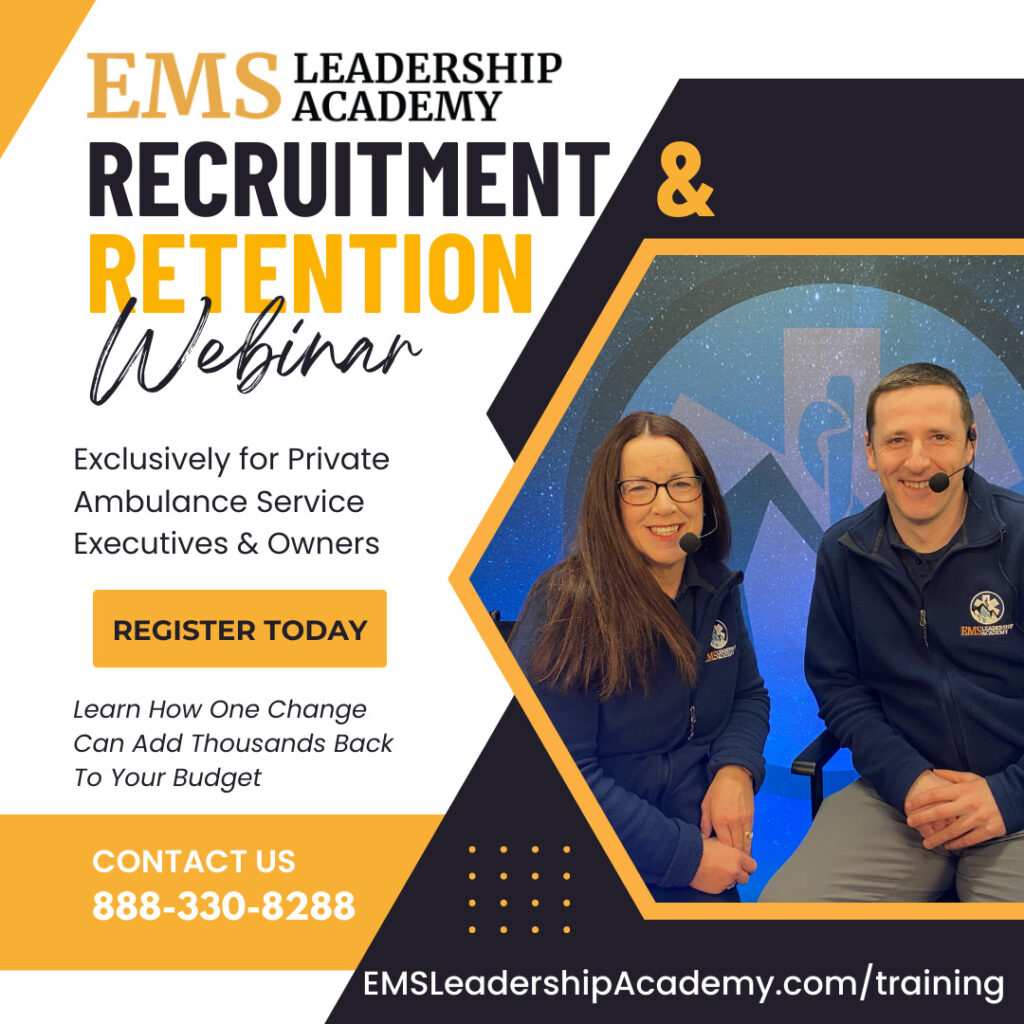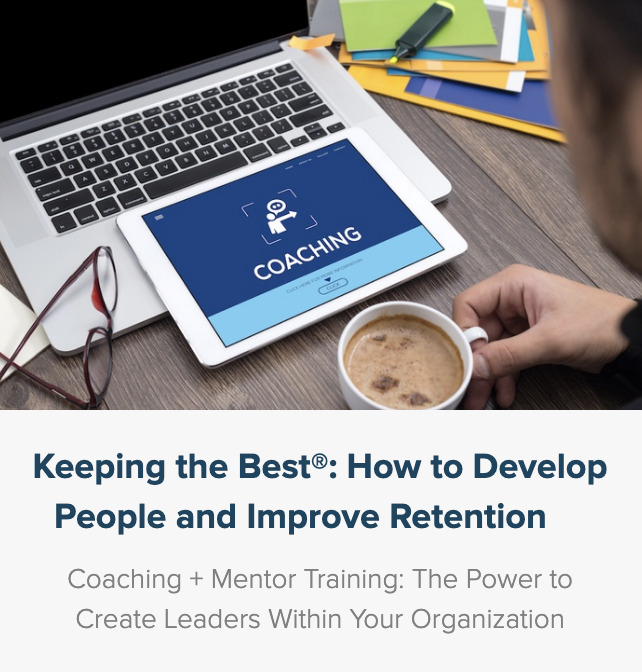- There’s two ways of looking at this. The traditional way of thinking about this is in order to improve myself I have to fix my weaknesses. That’s like deciding to become left handed when you are right handed. It’s a lot of energy and effort for very little improvement. Another way of looking at it is: Why not focus on mastering your strengths and making your weaknesses irrelevant?
- Secondly, you can learn anything. Whatever you give your time and attention to will improve. Learning happens incrementally so you have to look for 1-3% improvement at a time, not “I tried that once and it didn’t work.”
- Research shows that the greatest learning occurs in our areas of strengths, not weaknesses. We are so critical of ourselves we actually slow our learning progress.
What can you do?
- StrengthsFinder 2.0 by Gallup, it’s about $15-20 for the book and code.
- Taking the free www.viacharacter.org assessment.
Welcome to today's EMS leadership, Q and A, I'm Lisa Giruzzi. I'm here with Robbie MacCue and we are the co-founders of the EMS leadership Academy. And for those of you that don't know, we help EMS leaders bring out the best in themselves and others. And today's question is an interesting one that a lot of our work is built on, is How do I strengthen my weaknesses?
And we're not saying that our work is built on strengthening your weaknesses by the way, because there's two ways of looking at this. I think there's the traditional maybe outdated way of thinking about this in that in order to improve myself, I have to focus on fixing my weaknesses and that's like deciding to become left-handed when you're a right-hander right. Or when you're,
right-handed, it's a lot of energy for a little bit of very little bit of improvement. And another way of looking at this is why not focusing on mastering your strengths and making your weaknesses around. Yeah. And the thing I just want to add here is, you know, the more we learn about the brain and you know, the more research that's done,
you know, neuroscientists are, are saying, and this has been for years now that focusing on your strengths is really the, where the greatest area of learning comes from. You know, it's like not the area, but the greatest leaps of our learning comes from is actually from focusing on your strengths and, and mastering them. And that's counter to what we've been conditioned to think.
And, and we spent a lot of time on this in our courses because let's face it. If you've known what your weaknesses are, and you've worked on it for years and years and years, and people go, what's wrong with me? What's wrong with me? Well, you're fighting your own evolution here. So why not flip it to w you know,
how do I master my strikes that that's a much more rewarding way of, of growing and developing yourself. Now, that being said, the truth is we can always learn anything. And if you need to improve a weakness, the way to look at it is, is how do I get 1% better? How do I get 2% better? How do I get 3% better at this?
Because that's how learning works. It's incremental. So whatever you give your time and attention to you can improve. You know, even if you wanted to become left-handed, if you're right-handed, you can do that, but you don't expect to improve significantly, right? You, you know, that it's going to be incremental, and that's true with anything, any weakness that you have,
if you give your time and attention to it, you can improve it. The question is, is that what you want to give your time and attention to? If you decide you want to master your strengths and make your weaknesses irrelevant. Well, then you find people who have complimentary strengths to you, right? That, that they are better at your weaknesses.
You are, and you split the workup based on your strengths and weaknesses versus on doing 50 50. And I know you and I have had great success with that as people who have, you know, complimentary strikes and, and, and, you know, we, that's how we have been so effective and successful. I think it's important to point out in a team setting.
When you start to see your team members from their strengths and let them leverage their strengths, you will get such a better return on and such better performance out of a team. And especially when people start to realize the strengths of others and that we don't have to should on other people, like they should be better at executing this plan, or they, they should be better at relationship building,
or they should be whatever strengths that are just so natural to us. We, we tend to kind of shit on other people that they, they should, and we hold it against them in a way, when we start to see that they're complimentary strengths make our team and our organization so much greater it's, it's like flipping a switch. Yeah. And the challenge here is,
and it's a good challenge. The challenge is identifying your strengths because we tend to think of strengths as something that you're good at. And that's not always true. It's a better way to think about strengths is something you're energized by something that when you're doing it, it's like time flies, right? It's like, you love doing it. You love being engaged in it.
That's, that's what a strength is. Now, what happens is when people are a novice at their strength. In other words, you think of a strength as, you know, a novice to mastery, when you're a novice novice at it, it can look like a weakness because you haven't learned how to, you know, really hone in on it and use it to its maximum capacity.
And so you got to get interested in what your strengths are and learn what, what it means to have a strength versus, Oh, well, I'm good at, it must be a strength, not necessarily, right. You know, you can learn, like I said, you can learn anything. It doesn't mean it's a strength. It's a strength has a particular quality to it.
You feel stronger when you're engaged with a strength. Absolutely. And if somebody wants to identify their strengths, there are several assessment tools out there. One famous one is the strengths finder by Gallup research. And you can purchase their book and get a code or a redemption code for somewhere around $15, I think. And it really gives people a great resource of how do you,
where do you begin to start leveraging your strengths and how do you understand your top strengths? And they'll actually send you a report of your top identified five strengths in different categories. Another popular assessment tool, that's a free assessment tool is the via character assessment tool. So those are both two great resources to start you on a journey of identifying and leveraging those strengths.
Yeah. And Any of Gallup's books on strengths are really worth spending time on. Absolutely. So thanks everyone for joining us for this session of our weekly Q and a. We love getting together to do these for you. And if you have a question to submit, we'd love to hear it. You could send us an email support@emsleadershipacademy.com or leave us a voicemail at (888) 330-8288.
Thanks for joining us.




